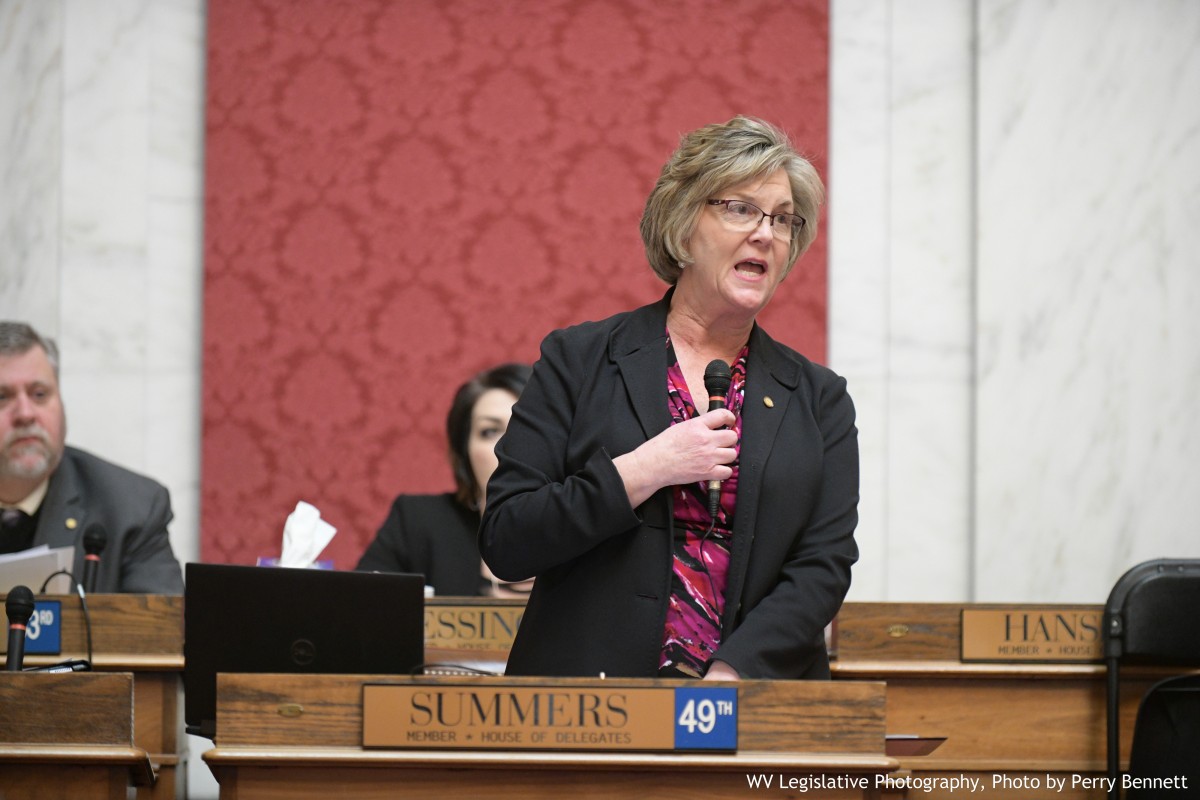CHARLESTON — The House of Delegates sailed through passage of several healthcare- and child welfarerelated bills on Wednesday, Jan. 30, but divided on and debated at length an amendment to the foster care bill.

The foster care bill is HB 2010. It proposes to allow the Department of Health and Human Resources to contract out foster care to managed care organizations and has been contentious all legislative session.
It was one second reading on the House floor on Wednesday and open for amendment.
Majority Leader Amy Summers, R-Taylor, proposed one to restore a sentence Judiciary removed. It says: “A residential child care center which has entered into a contract with the department to provide services to a certain number of foster children, shall accept any foster child who meets the residential child care center’s program criteria, if the residential child care center has not met its maximum capacity as provided for in the contract.”

The debate hovered around the ability of care centers to handle children with more serious problems. Kids are categorized in three tiers, with Tier 3 having the more serious challenges and being hardest to handle. Centers contract with DHHR to handle up to certain tiers, and get paid more for higher tiers.
Delegate Larry Rowe, D-Kanawha, argued that a center may be near capacity, but may not have the staff on hand to deal with a more difficult child and should have the right to turn the child away for everyone’s safety.
Delegates Andrew Robinson and Mike Pushkin, D-Kanawha, posed the situation of a boy who has committed sexual assault being forced to stay in a center with vulnerable girls.
Arguing for the amendment, Judiciary chair John Shott, R-Mercer, said the center has promised in its contract to handle children of certain tiers and should be required to honor its promise.
Health chair Joe Ellington, R-Mercer, said centers have been known to cherry pick their residents: they get paid for Tier 3 but turn them away for easier children. The intent of the bill is to bring kids being sent out of state back home.
Summers cited the case where 25 West Virginia kids were pulled out of a Georgia home where one kid had died. “We do not have our eyes on the kids when they are far, far away.”
And bill sponsor Kayla Kessinger, R-Fayette, said some kids are sent to jail when care beds aren’t available. “Instead of sending kids to jail, let’s keep them here and give htem the love and the care that they need.”
The amendment passed 54-45.
Delegates approved by voice vote an amendment offered by Lisa Zukoff, D-Marshall, requiring each managed care organization to create an advisory panel of foster parents to meet with twice a year and discuss issues.”
They rejected in a voice vote an amendment by Delegate John Doyle, D-Jefferson, to forbid managed care contracts and instead use the money to give DHHR child and adult protective service workers raises and hire 20 percent more service workers.
The bill is on third reading for passage on Thursday, Jan. 31.
Other bills
HB 2492 passed unanimously and goes to the Senate. Currently, all mandatory reports of child and adult abuse and neglect must be delivered by phone. The bill allows DHHR to establish the reporting means, opening up the opportunity to report via an online form or smartphone app.
HB 2525 also passed unanimously. It allows a pharmacist to dispense tobacco cessation therapy under a standing prescription drug order.
HB 2531 passed 97-1. It allows advanced practice nurses trained in mental health treatment to provide counseling services in a medication-assisted treatment program.
TWITTER @dbeardtdp Email David Beard at dbeard@dominionpost.com




